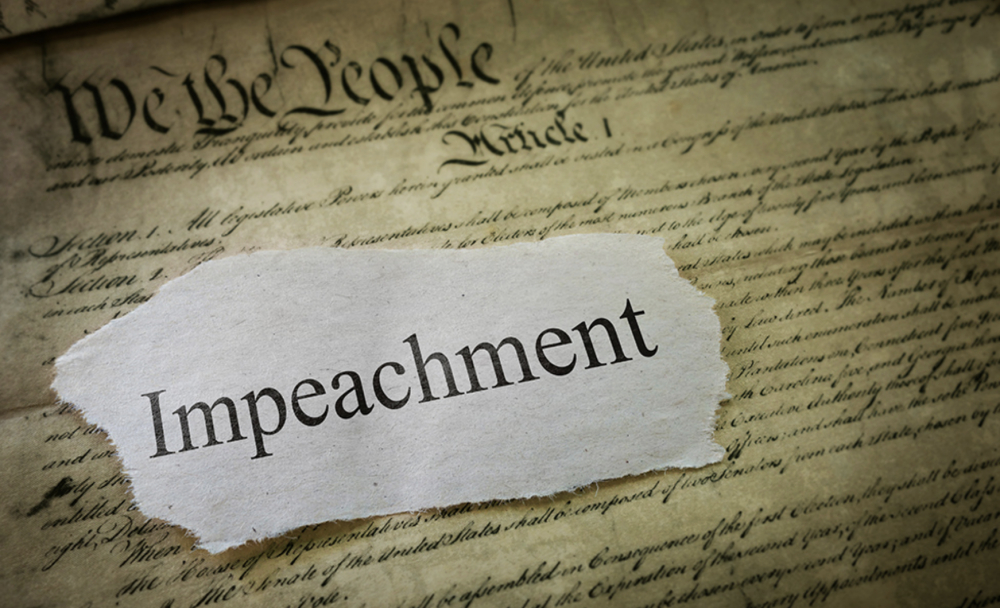If you strike the king, you must kill him.
Ralph Waldo Emerson, 1843; also attributed to Niccolo Machiavelli
There can be no doubt that Donald J. Trump is unqualified by character and temperament to be President of the United States. There is little doubt, based on his words and actions in public – at rallies, on television, on twitter and elsewhere – that he has committed offenses that might properly be defined as “high crimes and misdemeanors” – a quaint constitutional phrase that has no precise definition. The report of the Special Counsel, Robert S. Mueller, has documented these words and actions in excruciatingly painful detail.
Many of his 2016 campaign staff and members of his administration have been indicted and some have been convicted of various felonies, including perjury, violations of campaign finance laws, receiving and using information stolen from US intelligence agencies by foreign operatives, and meeting with agents of foreign, perhaps hostile, governments. Investigations continue into his personal and corporate finances and it is possible that additional evidence of serious crimes may be disclosed when this financial information becomes available. Congress should continue vigorously to pursue these investigations.
What shall be done? The Department of Justice has a policy of long-standing, to which Robert Mueller adhered, that a President cannot be indicted or tried for a federal crime. This policy does not have a basis in federal law nor has it been tested in a court, but it remains the policy. It might be tested. But according to this policy the only constitutional remedy for a felonious President is impeachment. The twenty-fifth amendment provides a different remedy for a President who is judged, by his or her own administration, to be incompetent due to physical, mental or emotional disability.
The founders wisely made impeachment an extremely difficult and therefore rarely attempted process. They clearly did not want the President to be removed for “mal-administration” – i.e. disagreement by Congress with his or her governmental policies
House Speaker Nancy Pelosi said a few months ago that impeachment should be based on overwhelming evidence, irrefutable facts, and bipartisan consensus. I agree with her. In the current circumstances that would imply a large, bipartisan, majority in the House of Representatives and a necessarily bi-partisan 2/3 majority in the Senate. A partisan vote of impeachment in the House followed by a partisan acquittal in the Senate would not remove the President, it would result in further rancorous division in the country, and it would enable the President and his supporters to claim – without cause – that he had been “vindicated.”
Twice in our nation’s history the House of Representatives has impeached the President and a trial has been conducted in the Senate. In 1867 President Andrew Johnson was acquitted by one vote, decisively cast by Senator Edmund G. Ross of Kansas who believed that the President should not be removed for purely political disagreement. Ross gained a place in John F. Kennedy’s Profiles in Courage for that vote. In 1998 President Bill Clinton was impeached by the House on a narrowly partisan vote; the vote in the Senate to convict – again, narrowly partisan – failed to attain even a simple majority. In 1974 President Richard Nixon, sensing that there was a bipartisan consensus for his impeachment, resigned from the Presidency rather than face impeachment.
In the current situation, the bipartisan consensus that impeachment requires may be attained as investigations continue. In the meantime, the majority in the House of Representatives is not helpless. There are several proposals – short of a vote of impeachment – that have been suggested. They should be explored and debated. But in my opinion impeachment by the House of Representatives should await a bipartisan consensus – or be postponed until the people’s vote in November, 2020.
If you strike the king, you must kill him.
John T. Ames
Chestertown



George R. Shivers says
The chance of getting a bipartisan majority to impeach may be difficult, even impossible, in today’s Republican Party in Congress and the Senate. In my view, however, that doesn’t mean that Congress should not attempt to impeach Trump. Congressional hearings on impeachment could create a groundswell of popular sentiment to bring Trump to justice, one that even Republicans could not resist. If not, at least the message would have been sent to the American people in 2020 that Trump is unfit to be president. Despite Nancy Pelosi’s resistance, I believe that the Democratic majority in the House of Representatives should move forward with impeachment.
Deirdre LaMotte says
Of course Trump should be impeached. And of course the
Senate would not hold a vote; our country is in trouble. We
have a huge decency deficit, to put it mildly, and there are
no decent Republicans in office. They are terrified of “his”
tweets. One Republican Representative has spine and he deserves the Profile in Courage award next year. So, given the situation, our House
was elected not to protect those in tough districts but to uphold
our Constitution. Do the job and impeach this horrible lier who is ruining all that is good in our world. Literally.